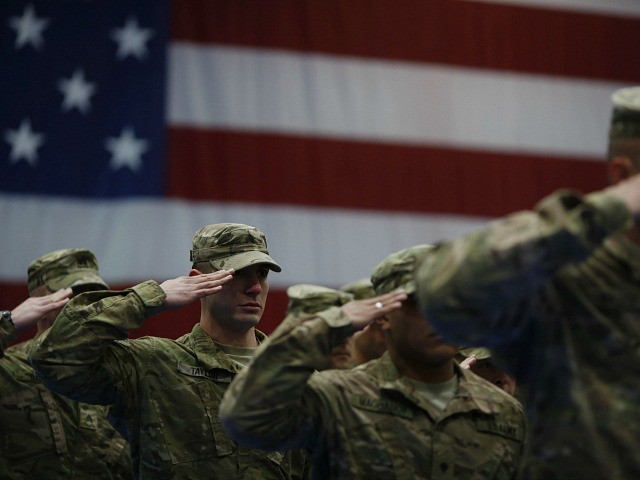Fed Planning MAJOR ECONOMIC RESET (Prepare for 50% Declines)
https://www.youtube.com/watch?v=QTr816wHG10
‘Disgraceful’: Army Tells Soldiers to Fight Inflation with Food Stamps

The Army’s top senior enlisted leader, Sergeant Major of the Army Michael Grinston, is encouraging soldiers to apply for food stamps, among other measures, as they face difficulties fighting inflation under the Biden administration.
“With inflation affecting everything from gas prices to groceries to rent, some Soldiers and their families are finding it harder to get by on the budgets they’ve set and used before. Soldiers of all ranks can seek guidance, assistance, and advice through the Army’s Financial Readiness Program,” Grinston said in a message to soldiers posted on Army websites at least since last month.
In the message in which he advises soldiers on where they and their families can seek financial help, he wrote, “SNAP is a U.S. government program that provides benefits to eligible low-income individuals and families via an electronic benefits transfer card that can be used like a debit card to purchase eligible food in authorized retail food stores. Service members and their families may be eligible.”
The U.S. is facing historic levels of inflation not seen since the 1980s. The cost of food is up by 13.5 percent, despite the Biden administration celebrating the so-called “Inflation Reduction Act” this week.
Grinston’s guidance to soldiers also comes as the Biden administration has sent billions of financial assistance to Ukraine for its war with Russia and prepares to request $13.7 billion more.
Defense Secretary Lloyd Austin earlier this week in Germany was asked to explain to American taxpayers why Congress should approve more money for Ukraine given the country’s “precarious” economic situation.
Austin said twice that he appreciated the expectation for a rationale but did not answer the question directly.
Mackenzie Eaglen, senior fellow at the American Enterprise Institute, and John Ferrari, a retired U.S. Army major general, recently wrote in an op-ed in the Wall Street Journal:
The Defense Department’s flat-footed response to inflation will result in a real—and cumulative—pay cut for service members. This won’t ease the crisis in military recruiting. The armed forces are likely to miss recruitment targets again next year, and therefore shrink at a time of heightened global risks.
…
Although the House and Senate have added money in their defense bills, $7.1 billion and $21.2 billion respectively, raging inflation means troops and their families will lose $8.7 billion in buying power this year. Since January 2021, service members will have received a 3% raise (2021), a 2.7% raise (2022), and a 4.6% raise (2023 projected)—but none of these will let them clear inflation. Uniformed personnel are facing a real pay cut of 12.5% by our estimate.
Republican lawmakers blasted Grinston’s suggestion that soldiers go on food stamps to survive inflation.
Rep. Brian Mast (R-FL), an Army veteran and double amputee, tweeted Thursday: “This is absolutely pathetic. This Administration is running our military and our country into the ground.”
Rep. Dan Bishop (R-NC) blasted Grinston for advising soldiers to apply for food stamps, tweeting, “This is disgraceful, and a direct result of Biden’s inflationary policies. Vaccine mandates have already shattered the careers of so man soldiers — how much more will Biden do to add insult to injury?”
Arizona Senate candidate Blake Masters (R-AZ) noted that while soldiers are advised to go on food stamps, taxpayers were paying for illegal aliens to be ferried around the U.S. at “enormous taxpayer expense.”
Van Hipp, chairman of American Defense International, Inc. and former deputy assistant secretary of the Army, tweeted, “This is real and sad.”
“The U.S. Army is telling soldiers to apply for Food Stamps to help cover rising costs from #inflation. This should tell all you need to know about the real impact of inflation on the lives of the American people,” he tweeted.
Jason Church, Afghanistan veteran and chairman of Veterans on Duty, tweeted, “Inflation is so bad, the US Army is pushing food stamps for soldiers. Seriously. Why does the most well funded military on the planet need additional public funds to feed soldiers & their families? The priorities of the White House & Pentagon are out of whack.”
Allen West, executive director of American Constitutional Rights Union and a retired Army lieutenant colonel, tweeted that it was “disgusting & unconscionable.”
No comments:
Post a Comment